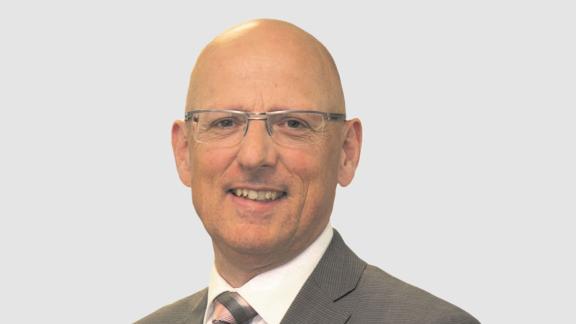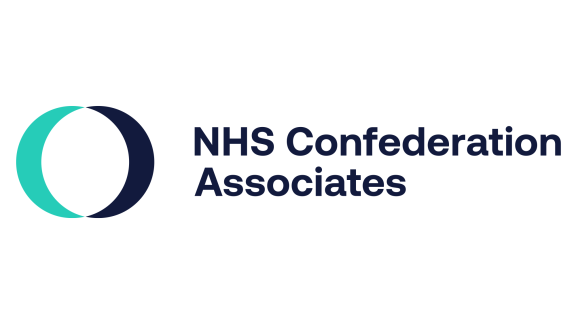Lessons in prevention from the fire service

Mark Yates, chair of Herefordshire and Worcestershire Health and Care NHS Trust and former chief fire officer, shares the lessons he learned about prevention during over 30 years spent in the fire service, and how these could help integrated care systems.
The terms ‘population health management’ and ‘health inequalities’ are currently very much at the fore in the NHS and there’s a strong argument to suggest that both phrases will be touchstones for success or otherwise for the newly formulated integrated care systems (ICSs). In attempting to get upstream in addressing the health of the population there is little doubt that prevention activities will be key and having had 30+ years’ experience within the fire service I’d like to suggest some lessons that may be learned from our blue-light colleagues.
Changing times and the prevention agenda
In the early 1980s, when I joined the fire service as a fireman, as the rank was called at that time, there were approximately 1,000 people dying in fires every year. That figure now stands at about 300. Similarly, fires across the nation have been reduced from about 450,000 to 150,000 per year - what has happened in those 40 years to achieve these significant improvements in the nation’s safety from fire? Firstly, society has had many safety improvements such as better electrical safety standards and a reduction in the number of people who smoke (thank you, public health!). Secondly, from the mid-1980s a few far-sighted individuals and of couple of chief fire officers in particular decided that as the experts in dealing with the devastating consequences of fire, fire service personnel should also be the experts in preventing fire happening in the first place.
Prevention is about changing population/individual behaviours and is a long-term game
So what have those 40 years taught us that may assist ICSs to be more effective at prevention?
Prevention is about changing population/individual behaviours and is a long-term game. The fire service only collectively got going on the prevention agenda when it was centrally supported, properly resourced and became a mainstream activity, this taking a minimum of 15-20 years to get real traction. Domestic smoke alarm take-up was very slow in the initial years, but from a base of nearly zero had risen to over 90 per cent of households by 2020.
We all know that the main determinants of health are housing, education and employment (very similar to determinants of safety from fire) but what is within immediate reach of ICS partners? I’d suggest that as the fire service changed behaviours without addressing the true determinants of fire safety, ICSs can do the same. However, ICS partners do have influence over the three main determinants of health and therefore addressing deficiencies in housing, education and employment can also be long-term objectives.
Focused, hard-hitting campaigns do work and get the public’s attention. ‘Fire Kills!’ is a slogan that remains to this day. But are ICSs, and I mean all partners not just our public health colleagues, brave enough to deliver such hard-hitting messages? Refined white sugar kills, sedentary lifestyles kill, alcohol kills, loneliness kills…
…the best initiatives come from the frontline staff who deal with the consequences of not having preventative initiatives
The Dying to Drive initiatives introduced around the country involved local firefighters working with local leaders to educate 16-18 years olds about the perils of gung-ho driving, which is a major cause of death to young drivers and passengers. And that is where the best initiatives come from: the frontline staff who deal with the consequences of not having preventative initiatives. Firefighters drove initiatives that stopped them dealing with dead bodies and I’d suggest that if empowered to contribute to the prevention agenda, NHS staff and all ICS partners could do similar. And while mentioning frontline staff, please note it took many years to get acceptance from firefighters that prevention is a core activity. Time spent on educating and convincing staff of the virtue of them being active in prevention is time well spent.
And consider involving the very people you want to influence: community volunteers. There are many members of our communities who want to give their time freely to good causes. As we know from hospital volunteers, the NHS is an attractive arena for voluntary work but is now the time to get them to work on prevention as a main thrust of their activities?
A role for representative organisations
There’s also a key role for representative organisations such as the NHS Confederation. If changes to national policies, or even legislation, are required then individual NHS trusts and organisations cannot effectively drive national change, but national representative organisations can. Examples for the fire service being lobbying by the Chief Fire Officers’ Association and trade unions that achieved Flammable Furnishing Regulations and changes to the building regulations to mandate smoke alarms in domestic premises.
The fire service is not perfect, far from it, but it does have a very long and sometimes tortuous history of prevention and all the scars that go with it. Prevention is a long-term game and many of us currently active in the NHS will not witness the changes through a well-resourced and coordinated preventative agenda. However, with bravery and commitment the leaders of today can be credited with getting to grips with something that can really shift the dials on population health management, including the inherent inequalities. Are we brave enough?
Mark Yates is chair of Herefordshire and Worcestershire Health and Care NHS Trust, and a former chief fire officer/chief executive. You can follow Mark on Twitter @Markyates1964



